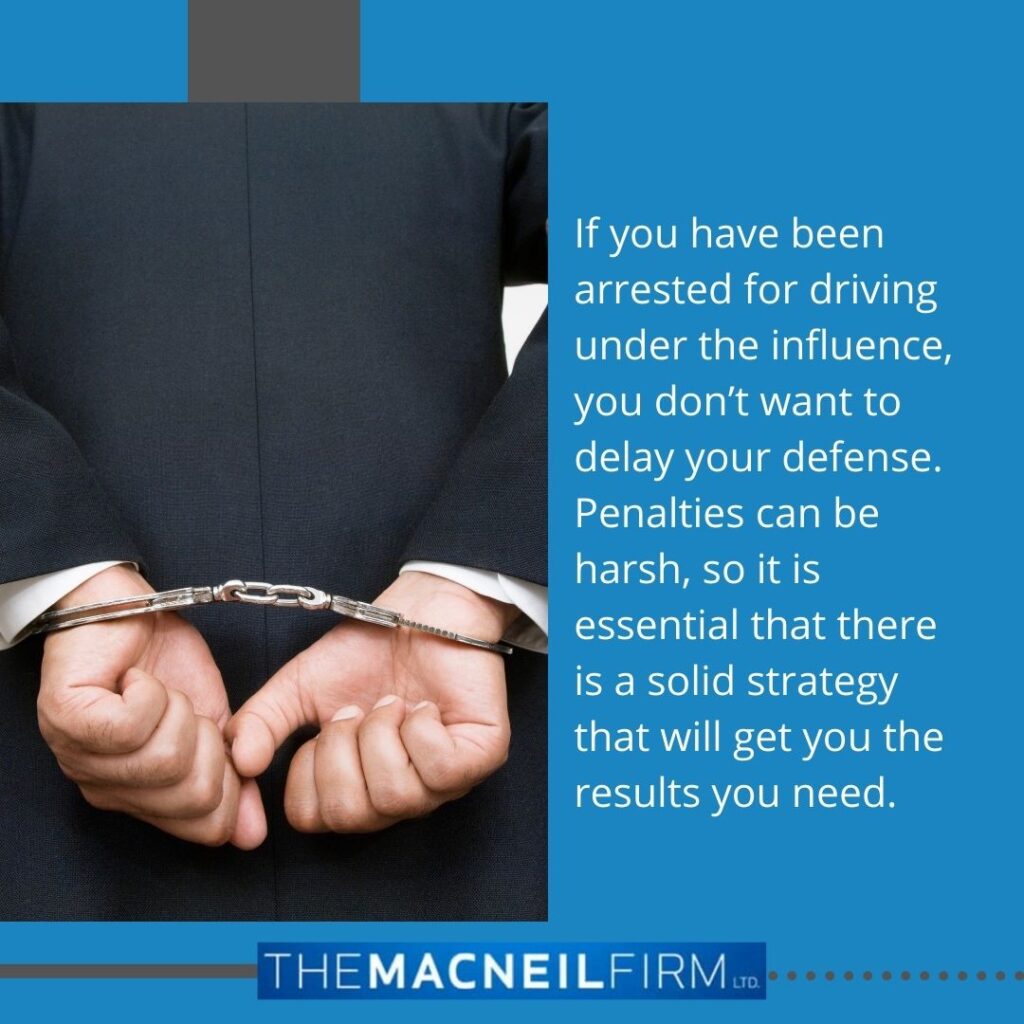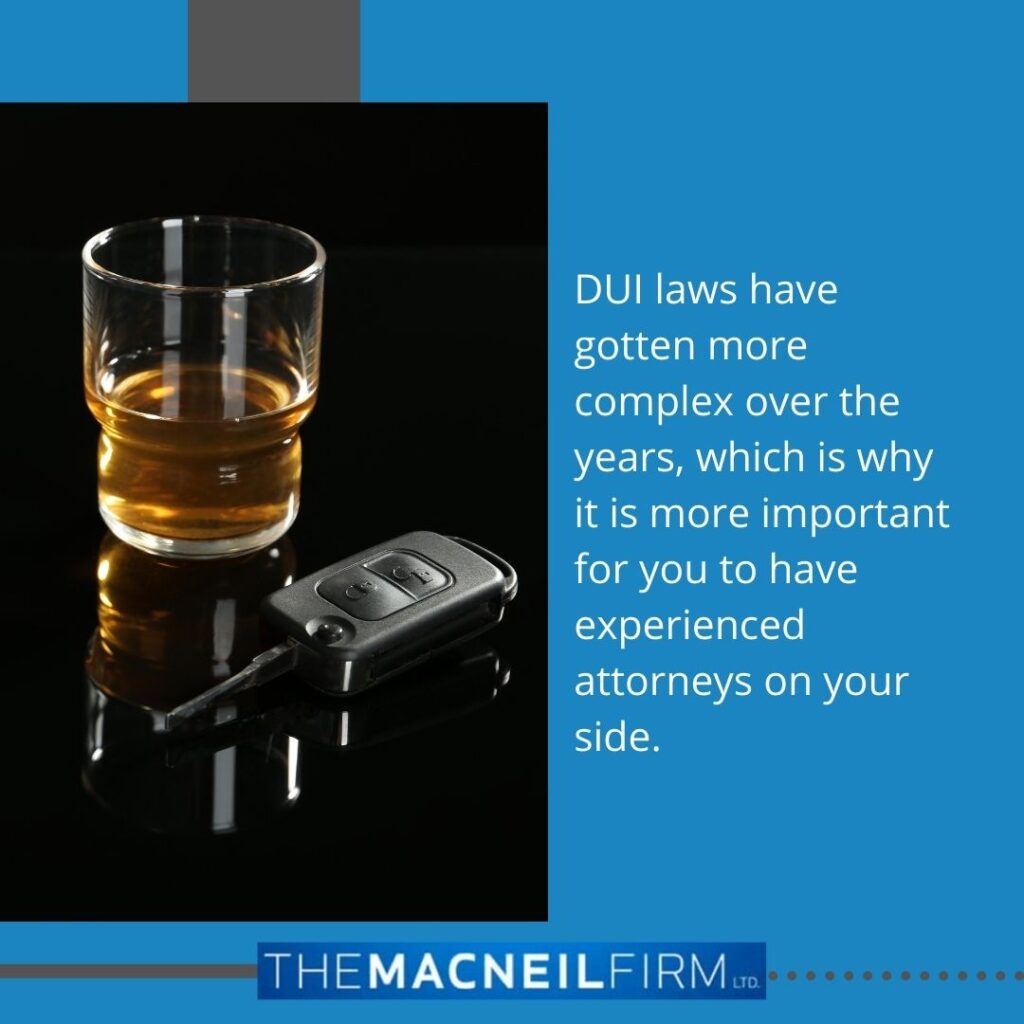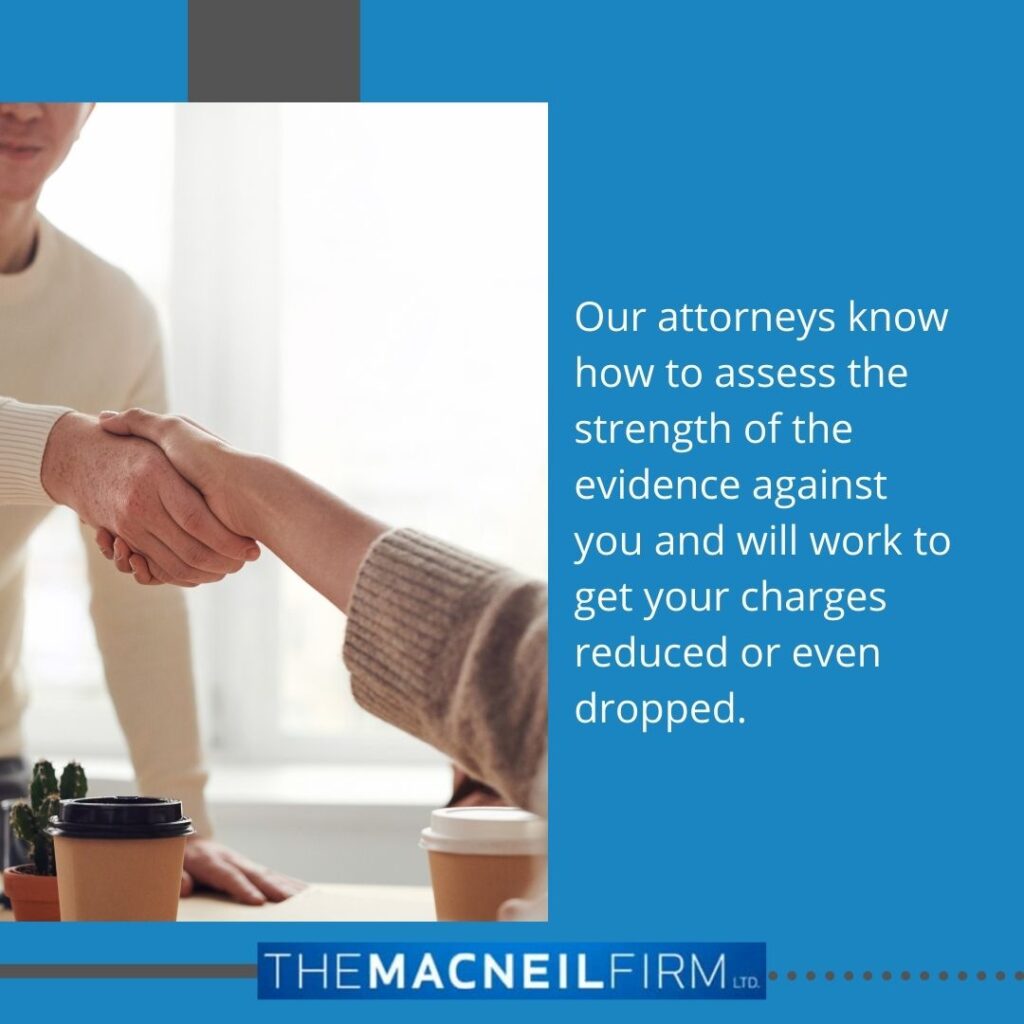When you or someone you care about is facing a criminal arrest or accusation, you want to be sure you have a focused, dedicated, and compassionate legal team on your side. The MacNeil Firm is here to provide a strong Illinois DUI Defense that will protect you and your future. We have vast experience for all kinds of traffic violations and DUI’s. Whether you need services for a first DUI offense, or if you are facing repeat offenses in Illinois we are here for you.
Our knowledge of Illinois’ laws and their unique distinctions gives us the edge to mount an Illinois DUI defense that is well-prepared. Some of our services for DUI defense in Illinois include:
- DUI, DWI, and OUI
- 1st DUI offenses
- 2nd DUI offenses
- Repeat DUI offenses
- License suspension
- License reinstatement
- Traffic violations
We are here to provide legal counsel to our clients and make sure they fully understand the charges, the legal process, and possible outcomes of the case. We will investigate the facts of the case and collect all necessary information to build a strong defense. Depending on the circumstances, we will work to prove our clients innocence and get charges reduced or dropped. In certain cases, court proceedings may be necessary and we will make sure that we challenge all aspects of the prosecutions case that we can to defend and protect our clients.
What happens if my case goes to trial?
Pre-Trial
Before trial, we always file pre-trial motions, called a motion in limine. Basically, that is a motion that asks the court to exclude certain evidence, or asks for evidentiary rulings before the trial begins. That is extremely important, particularly in a jury trial because it can ensure that jurors don’t hear or see evidence that we want to exclude. Filing pre-trial motions asking for rulings on that type of evidence ahead of time ensures that improper evidence doesn’t make it to trial.
Jury Selection
In a jury trial, the next step is to pick the individuals that will form the jury. That is where we essentially interview all the potential jurors, and learn about each one. From that interview process, we then try to determine which of those people we want on our jury and which ones we do not. We can ask the judge to exclude certain people for cause. Excluding a potential juror for cause means that there is a factual or legal basis to ask for their removal.
We also have what are called peremptory challenges, which allow us to exclude a certain number of people for no reason at all. The state’s attorney has the same ability to exclude people for cause or just because they do not like them. Once we have picked the jury, then we start the evidence part of the trial. During a bench trial, the judge listens to the evidence and makes the determination whether my client is guilty or not guilty. At a jury trial those twelve people must make a unanimous decision whether the client is guilty or not guilty.
Trial Proceedings
Both prosecution and defense may make an opening statement. The state, because they have the burden of proof, they have to make their opening statements first. Then I will make my opening statement for the defense. Then the state goes first with their evidence. The state will present evidence and witnesses, and I will than have an opportunity to cross-examine and confront every one of those witnesses. I have opportunities to object to any evidence that the state is trying to admit during the trial.
When the state’s case is over, I usually make a motion for directed finding, and that is a motion in essence asking the judge to make a determination that the state has not even met any sort of barebones standard of evidence, and that the state’s case is so weak that the judge should just make a determination for the defense right then and there. If the judge grants it, then the case is over. If the judge denies that motion for directed finding, then if we have decided to do so, then the defense would present evidence and witnesses. My client has the opportunity to testify in his or her own defense, but they do not have to.
If they do not, that will not be held against them. Of course, the state’s attorneys will have an opportunity to cross-examine any of our witnesses. When all the evidence and witnesses have been presented, then we go into closing arguments. A bench trial primarily operates the same way. It is a little bit more abbreviated. A simple jury trial will take two to three full days, but a bench trial can sometimes finish in an afternoon.
For a strong Illinois DUI Defense, contact The MacNeil Firm
If you’re facing DUI charges in Illinois, our attorneys are licensed to defend you. We handle all types of involved with DUI charges, including preventing revoked licenses and working to reinstate yours if you’ve already lost your driving privileges. Our legal services are available in the following counties in Illinois: Lake, Grundy, Kankakee, Cook, and Will.
Please contact the MacNeil Firm if you have any questions or if you’d like to discuss your DUI defense needs in Illinois with a DUI lawyer. Our attorneys will give you the right advice and provide an Illinois DUI Defense that will protect you and your future. You can call us at (708) 218-0947 to speak to a DUI defense attorney. Have an experienced drunk driving lawyer by your side. Contact us today for a free consultation.



